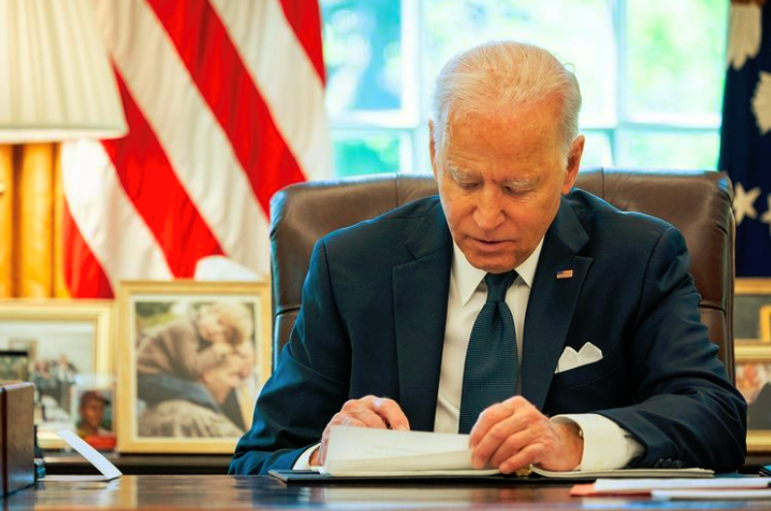‘Universalizing Section 8 would address poverty, boost the economy, and even stimulate affordable housing production–ultimately benefiting everyone, not just the recipients.’

White House
President Joe Biden’s campaign pledge to fully fund federal rental assistance programs so that every eligible American can receive aid was more than just a component of his housing plan. It was also a promise to transform the country by finally ensuring that the basic right to housing is included in our social safety net. After the pandemic crystalized the importance of housing, the time is right for bold thinking.
Congress agrees. That’s why the reconciliation package currently includes a $90 billion expansion of the Section 8 program, which represents the largest expansion in the program’s history. An expansion of that kind should be viewed as a down payment on universalizing the program, and it is one that Americans in every community should applaud.
Here in New York, for example, about 70 percent of very low-income New York renters pay more than half their income in rent in large part because there is a statewide shortage of more than 600,000 affordable rental homes. But it is also because Congress has underfunded life-changing federal programs like Section 8 to the point that just 23 percent of eligible households receive aid from the program. That is what universal Section 8 would change–and new research from the New York Housing Conference shows exactly how powerful that transformation would be both in the Empire State and across the nation.
In a report with HR&A Advisors, we found that 1.1 million households in New York alone would benefit from rental assistance if it were fully funded. Nationally, that would mean a 22.5 percent poverty reduction by doubling the residual income at a household’s disposal after housing costs. That would mean an additional $7,680 per year to pay for food, medicine, childcare, transportation, and other necessities.
That new economic freedom would benefit the entire community. In New York alone, it would catalyze $8.5 billion in additional spending each year, creating 96,000 new jobs and a total of $14.7 billion in new economic activity overall. In turn, that boosts state and local revenues, as New York State would generate $424 million in additional tax revenue each year–New York City would receive $313 million–to address other pressing issues facing the state.
Of the beneficiaries, more than half would be single female-headed households; a third would reach households with children in their care. And an overwhelming amount, about 70 percent, would be Black or Latinx households, meaning that this is a vital chance to address decades of discrimination and racism in America’s housing policy. It will also allow New York City to increase affordable housing production by 33 percent.
While we only studied the impacts to New York, where we are based, similar impacts would be seen in every state and locality across the country. Universalizing Section 8 would address poverty, boost the economy, and even stimulate affordable housing production–ultimately benefiting everyone, not just the recipients. It is difficult to imagine a more transformative policy.
Realizing these benefits is not a far-fetched, idealistic dream. In fact, the opportunity is right in front of us. By simply making a different choice–one that recognizes the fundamental importance of a safe, secure home–we have the power to change America for the better. This is an investment in our country that we can’t afford to pass up.
Rachel Fee is the Executive Director of the New York Housing Conference, which commissioned the report with HR&A Advisors.









One thought on “Opinion: Expanding Section 8 Rental Assistance Would Be Transformative for NY”
This is needed I am a senior on fixed income & has been on the waiting list for 13 yrs. I think the whole system of section 8 need to be looked into